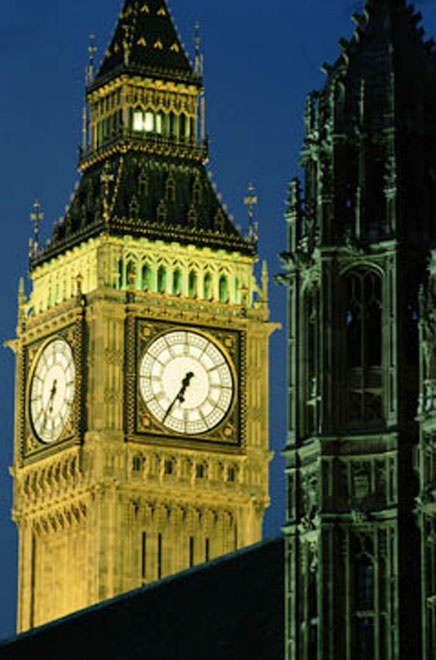Britain on Monday identified al-Qaeda-style terrorism and cyberattacks as topping the list of threats facing the country's security in the future, DPA reported.
The reappraisal of Britain's security strategy, published by the Conservative-Liberal government, also listed natural disasters, a large-scale accident and an international crisis as being among major - or tier one - security risks.
"The United Kingdom faces a complex array of threats from a myriad of sources," said the report on national security strategy, entitled A Strong Britain in an Age of Uncertainty.
In order to guarantee Britain's security while "shaping a stable world," the government's highest priorities are tackling terrorism, cybersecurity, international military crises and natural disasters such as floods and pandemics, the report said.
In a joint foreword, Prime Minister David Cameron and Deputy Prime Minister Nick Clegg called for a "radical transformation" in the way Britain organizes its national security.
"We are entering an age of uncertainty. This strategy is about gearing Britain up for this new age of uncertainty - weighing up the threats we face and preparing to deal with them," they said.
The defence and security structures of the previous government, which were last reviewed in 1998, had proved "woefully unsuitable for the world we live in today," they said.
The security reappraisal, which is part of a wider strategic defence and security review, will allow Britain to "react quickly and effectively to new and evolving threats to our security," they added.
The strategic defence review, due to be published Tuesday, is to set out the future shape of Britain's armed forces following expected budget cuts of around 8 per cent to be announced later this week.
Monday's security review, the government admitted, marked a "step change" in Britain's ability to protect its security and advance its interests in the world.
While terrorism remains a "serious" threat, cybercrime is a "new and growing danger," it said.
The government plans to invest an extra 500 million pounds (795 million dollars) into cybersecurity to protect "key infrastructure and defence assets," including power stations and food distribution points.
Analysts in London pointed to the example of Estonia, where "cyber aggression" had in 2007 brought down the entire computer network, from the government to defence and the media.
"Such attacks can in future become a major threat to our economic welfare," British Foreign Secretary William Hague said Monday.
The new emphasis on cybercrime and cyberwarfare has surprised some observers.
But the government said that its newly established National Security Council had, for the first time, looked at the overall picture of the threat, rather than examining different areas in isolation.
A second series of "tier two" priorities listed in the review includes an "attack by another state or its proxy using weapons of mass destruction, a civil war or other instability which terrorists could exploit to threaten the UK, and a significant increase in the level of organized crime."
Also listed as a "tier two" priority is the threat of severe disruption to information received or transmitted by satellites, possibly as the result of a deliberate attack by another state.
A large-scale conventional military attack on Britain is rated only as a "tier three" priority, alongside the "disruption to oil and gas supplies and a large-scale radioactive release from a civil nuclear site."
Other "tier three" risks include a significant increase in the number of terrorists, organized criminals or illegal immigrants trying to enter Britain, an attack on another NATO or European Union member, and the disruption of essential supplies such as food or minerals.
Britain targets cyberwarfare in "radical" security review
Britain on Monday identified al-Qaeda-style terrorism and cyberattacks as topping the list of threats facing the country's security in the future, DPA reported.






